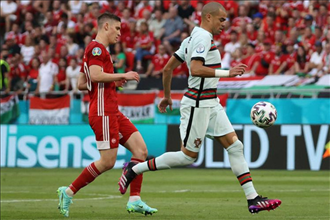UEFA Euro 2024 is the 17th European Football Championship organized by UEFA and will be held in 10 cities in Germany from June 14 to July 14, 2024. This is the second time that Germany has undertaken
UEFA Euro 2024 is the 17th European Football Championship organized by UEFA and will be held in 10 cities in Germany from June 14 to July 14, 2024. This is the second time that Germany has hosted the European Cup since 1988. What are the highlights of this European Cup worth paying attention to? Let's have a look.
First of all, the team lineup of this European Cup is strong. There are 24 teams divided into 6 groups. The top two teams and the four best third teams of each group will be promoted to the knockout stage. Among them, Germany, the host country, Italy, the defending champion, England, the last runner up, France, Spain, Portugal, the Netherlands, Belgium and other traditional powers are the hot spots to win the championship. In addition, there are some dark horse teams, such as Turkey, Croatia, Denmark, Switzerland, etc., which may also create surprises. The following is the grouping of this European Cup:
| group |
team |
| Group A |
Germany, Scotland, Hungary, Switzerland |
| Group B |
Spain, Croatia, Italy, Albania |
| Group C |
Slovenia, Denmark, Serbia, England |
| Group D |
Winners of play off group A, Netherlands, Austria, France |
| Group E |
Belgium, Slovakia, Romania, the winner of the play off group B |
| Group F |
Turkey, playoff group C winner, Portugal, Czech Republic |
Secondly, the competition venue of this European Cup is also very exciting. There are 10 modern stadiums to host the competition, including Allianz Stadium in Bayern Munich, the German Bundesliga giants, Signer Iduna Park in Dortmund, and Feltins Arena in Schalke 04. These stadiums not only have advanced facilities and comfortable viewing environment, but also have a strong fan atmosphere and historical heritage. Among them, the final will be held in Berlin Olympic Stadium on July 14, 2024, which is the home of German football and the venue of the 2006 World Cup final. The following are the stadiums hosting this European Cup:

| court |
City |
Capacity |
Undertake the team |
| Allianz Stadium |
Munich |
70,076 |
Bayern Munich |
| Signa Eduna Park |
Dortmund |
81,360 |
Dortmund |
| Feltins Arena |
Gelsenkirchen |
54,740 |
Schalke 04 |
| Mercury Entertainment Arena |
Dusseldorf |
51,031 |
Dusseldorf |
| Rhine Energy Stadium |
Cologne |
49,827 |
Cologne |
| Red Bull Arena |
Leipzig |
49,539 |
RB Leipzig |
| Berlin Olympic Stadium |
Berlin |
74,461 |
Hertha Berlin |
| Commerzbank Arena |
Frankfurt |
48,387 |
Frankfurt |
| Mercedes Benz Arena |
Stuttgart |
54,697 |
Stuttgart |
| People's Park Stadium |
hamburger |
52,245 |
hamburger |
Finally, the competition culture of this European Cup is also very rich, including the emblem, mascot, official ball, etc. The design of the emblem is inspired by the national flag and football of Germany. The main colors are black, red and gold, forming a dynamic football pattern, which symbolizes the passion and unity of German football. The design of the mascot is an open solicitation jointly sponsored by UEFA and the German Football Association, which is still in progress and will be announced in early 2023. Adidas is responsible for the design of the official ball, which is expected to be released at the end of 2023.
In short, the 2024 European Cup will be a football feast, not only with high-level sports, but also with wonderful venues and culture. Let's look forward to the coming of this event.












